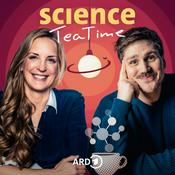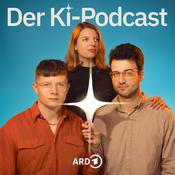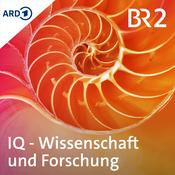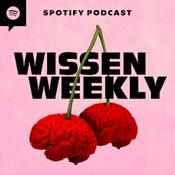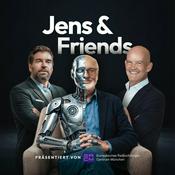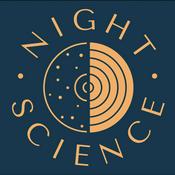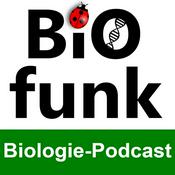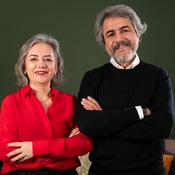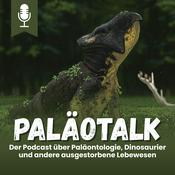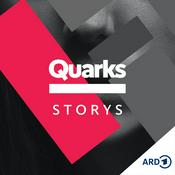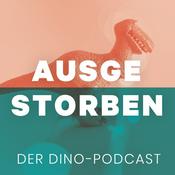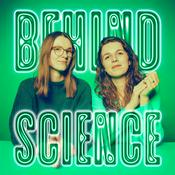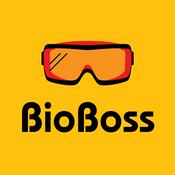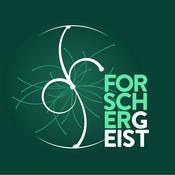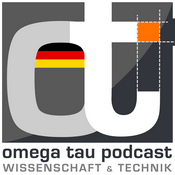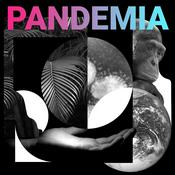169 Episoden
Decoding Cell Fate Through 3D Genome Organization and Chromatin Dynamics (Srinjan Basu)
12.2.2026 | 41 Min.In this episode of the Epigenetics Podcast, we talked with Srinjan Basu from Imperial College London to talk about his work on how chromatin architecture and epigenetic mechanisms orchestrate developmental gene expression programs.
We begin by exploring Dr. Basu's early work at Harvard which involved pioneering Raman-based label-free imaging, allowing the study of chromatin dynamics in live tissue. Here, he tackles technical challenges faced in visualizing DNA interactions, emphasizing the shift from 2D to 3D analysis and the importance of real-time observation of chromatin behavior under various conditions. This segues into his groundbreaking research on single transcription factors interacting with chromatin, revealing subtle but significant changes in the dynamics of gene regulation.
We transition into the complexities of chromatin architecture as Dr. Basu recounts his efforts in mapping the entire mouse genome in single pluripotent cells, unearthing unexpected heterogeneity among cells. This heterogeneity raises intriguing questions about its impact on cellular function, prompting ongoing investigations into chromatin dynamics and the role of remodeling complexes like NuRD in cell fate transitions.
Dr. Basu elucidates how recent studies have begun to bridge the gaps in understanding how transcription factors and chromatin dynamics interact during cellular decisions, particularly emphasizing the influence of mechanical signals and the intrinsic properties of cells. His research underscores the idea that stem cells undergo a preparatory phase for differentiation, highlighting the critical balance of intrinsic and extrinsic factors that govern genetic expression and cellular outcomes.
We also talk about Dr. Basu's current research trajectory, focusing on enhancing imaging techniques to study gene dynamics in tissue contexts relevant to developmental biology and disease states. He illustrates a vision for future projects that integrate advanced imaging tools to investigate transcription factor dynamics and chromatin interactions in live cells and embryos, furthering the understanding of decision-making processes in cellular contexts.
References
Stevens TJ, Lando D, Basu S, et al. 3D structures of individual mammalian genomes studied by single-cell Hi-C. Nature. 2017 Apr;544(7648):59-64. DOI: 10.1038/nature21429. PMID: 28289288; PMCID: PMC5385134.
Basu S, Needham LM, Lando D, et al. FRET-enhanced photostability allows improved single-molecule tracking of proteins and protein complexes in live mammalian cells. Nature Communications. 2018 Jun;9(1):2520. DOI: 10.1038/s41467-018-04486-0. PMID: 29955052; PMCID: PMC6023872.
Related Episodes
Advanced Optical Imaging in 3D Nuclear Organisation (Lothar Schermelleh)
Analysis of 3D Chromatin Structure Using Super-Resolution Imaging (Alistair Boettiger)
Single-Molecule Imaging of the Epigenome (Efrat Shema)
Contact
Epigenetics Podcast on Mastodon
Epigenetics Podcast on Bluesky
Dr. Stefan Dillinger on LinkedIn
Active Motif on LinkedIn
Active Motif on Bluesky
Email: [email protected]Taking ChIP from Yeast to ENCODE to Enable Genome-Wide Regulatory Protein Mapping (Peggy Farnham)
29.1.2026 | 29 Min.In this episode of the Epigenetics Podcast, we talked with Peggy Farnham from the Keck School of Medicine at USC about her work on establishing the ChIP Method in mammalian cells.
In this episode, we dive into the relationship between transcription factors, chromatin dynamics, and gene expression with Professor Peggy Farnham from the Keck School of Medicine at USC. Professor Farnham shares her profound insights into how her groundbreaking research has reshaped our understanding of gene regulation and its implications in cancer. We explore how she has been a pioneer in mapping the genome-wide landscape of regulatory proteins, illuminating the molecular logic behind transcriptional control and its disruption in cancer biology.
The interview starts with her instrumental role in adapting chromatin immunoprecipitation (ChIP) technology from yeast to human cells. Professor Farnham reflects on the technical challenges she faced during this transition, such as the quest for visibility of signals in mammalian systems. Her ability to innovate and troubleshoot challenges led to significant advancements in techniques that allow for the rapid identification of transcription factor binding sites, fundamentally changing the landscape of epigenetic research.
As the discussion progresses, we learn about Professor Farnham's active involvement in the ENCODE project, where she contributed to high-resolution mapping of transcription factors and regulatory elements in human cells. She articulates her appreciation for collaborative efforts in science, highlighting how working within a consortium harnesses the collective expertise of diverse research groups. This collaboration not only bolstered the credibility of the data produced but also propelled the field forward in understanding the complexity of gene regulation.
Through her participation in various projects, such as the Psyc-ENCODE consortium and the Roadmap Epigenome Mapping Consortium, Professor Farnham shares insights into her investigation of epigenetic variations, particularly in relation to complex disorders like schizophrenia. Her findings underscore the nuances of enhancer variability among individuals and the implications for understanding disease mechanisms, thereby advancing our knowledge of genetic regulation and its contributions to diverse biological outcomes.
Moreover, the episode highlights Professor Farnham's reflective understanding of emerging technologies in the field. She discusses the evolution of methods that allow researchers to investigate gene regulation at single-cell resolution, recognizing the significant implications these innovations have for our comprehension of cellular differentiation and the transcriptional landscape.
References
Weinmann AS, Bartley SM, Zhang T, Zhang MQ, Farnham PJ. Use of chromatin immunoprecipitation to clone novel E2F target promoters. Molecular and Cellular Biology. 2001 Oct;21(20):6820-6832. DOI: 10.1128/mcb.21.20.6820-6832.2001. PMID: 11564866; PMCID: PMC99859.
Wells J, Farnham PJ. Characterizing transcription factor binding sites using formaldehyde crosslinking and immunoprecipitation. Methods (San Diego, Calif.). 2002 Jan;26(1):48-56. DOI: 10.1016/s1046-2023(02)00007-5. PMID: 12054904.
Rhie SK, Schreiner S, Witt H, et al. Using 3D epigenomic maps of primary olfactory neuronal cells from living individuals to understand gene regulation. Science Advances. 2018 Dec;4(12):eaav8550. DOI: 10.1126/sciadv.aav8550. PMID: 30555922; PMCID: PMC6292713.
Tak YG, Hung Y, Yao L, et al. Effects on the transcriptome upon deletion of a distal element cannot be predicted by the size of the H3K27Ac peak in human cells. Nucleic Acids Research. 2016 May;44(9):4123-4133. DOI: 10.1093/nar/gkv1530. PMID: 26743005; PMCID: PMC4872074.
Related Episodes
The Effect of lncRNAs on Chromatin and Gene Regulation (John Rinn)
CpG Islands, DNA Methylation, and Disease (Sir Adrian Bird)
The Future of Protein–DNA Mapping (Mitch Guttman)
MLL Proteins in Mixed-Lineage Leukemia (Yali Dou)
Contact
Epigenetics Podcast on Mastodon
Epigenetics Podcast on Bluesky
Dr. Stefan Dillinger on LinkedIn
Active Motif on LinkedIn
Active Motif on Bluesky
Email: [email protected]- In this episode of the Epigenetics Podcast, we talked with Will Wang from Sanford Burnham Prebys about his work on muscle stem cell repair, regeneration, and aging, exploring spatial-omics and machine learning.
We begin our conversation by exploring the traditional concepts of spatial biology and how they have evolved to play a critical role in disease research. Dr. Wang recounts his journey from a young student in a family of academics to becoming a leading figure in regenerative biology, highlighting how his early interests in life sciences, natural problem-solving abilities, and inspirations from mentorship set the stage for his current research trajectory.
Throughout the discussion, we uncover key insights on how muscle stem cells transition from a quiescent state to a proliferative state in response to injury and how this dynamic process is governed by the epigenetic landscape and various signalling pathways. Dr. Wang emphasises the impact of external factors—be it microenvironment conditions or metabolic cues—on the fate and function of these stem cells, reflecting on the methodologies used to investigate these processes throughout his career.
He shares fascinating findings from his PhD work, where he explored the regulatory role of transcription factors like PAX-7 in muscle stem cell activation, and how subsequent research developed in his postdoc at Stanford further illuminated the relationship between metabolism and histone acetylation. This pivotal work not only demonstrated how metabolic states dictate epigenetic modifications but also offered potential therapeutic insights for muscle degeneration and repair.
As we move into more recent projects, Dr. Wang discusses the advances in multiplexed spatial proteomics and the insights garnered from a single-cell spatiotemporal atlas of muscle regeneration, which highlight the cellular heterogeneity in muscle tissue. He describes the use of novel computational tools, including neural networks, to uncover the regulatory mechanisms underlying stem cell function, particularly how prostaglandin signalling informs the regeneration process and how age impacts stem cell efficacy. The episode then wraps up with an engaging dialogue about the future implications of Dr. Wang’s work in addressing age-related muscle degradation and broader applications in regenerative medicine.
References
Yucel, N., Wang, Y. X., Mai, T., Porpiglia, E., Lund, P. J., Markov, G., Garcia, B. A., Bendall, S. C., Angelo, M., & Blau, H. M. (2019). Glucose Metabolism Drives Histone Acetylation Landscape Transitions that Dictate Muscle Stem Cell Function. Cell Reports, 27(13), 3939-3955.e6. https://doi.org/10.1016/j.celrep.2019.05.092
Wang, Y. X., Palla, A. R., Ho, A. T. V., Robinson, D. C. L., Ravichandran, M., Markov, G. J., Mai, T., Still, C., Balsubramani, A., Nair, S., Holbrook, C. A., Yang, A. V., Kraft, P. E., Su, S., Burns, D. M., Yucel, N. D., Qi, L. S., Kundaje, A., & Blau, H. M. (2025). Multiomic profiling reveals that prostaglandin E2 reverses aged muscle stem cell dysfunction, leading to increased regeneration and strength. Cell Stem Cell, 32(7), 1154-1169.e9. https://doi.org/10.1016/j.stem.2025.05.012
Related Episodes
Stem Cell Transcriptional Regulation in Naive vs. Primed Pluripotency (Christa Buecker)
The Effect of Mechanotransduction on Chromatin Structure and Transcription in Stem Cells (Sara Wickström)
Epigenetic Regulation of Stem Cell Self-Renewal and Differentiation (Peggy Goodell)
Contact
Epigenetics Podcast on Mastodon
Epigenetics Podcast on Bluesky
Dr. Stefan Dillinger on LinkedIn
Active Motif on LinkedIn
Active Motif on Bluesky
Email: [email protected] - In this episode of the Epigenetics Podcast, we talked with Will Wang from Sanford Burnham Prebys about his work on muscle stem cell repair, regeneration, and aging, exploring spatial-omics and machine learning.
We begin our conversation by exploring the traditional concepts of spatial biology and how they have evolved to play a critical role in disease research. Dr. Wang recounts his journey from a young student in a family of academics to becoming a leading figure in regenerative biology, highlighting how his early interests in life sciences, natural problem-solving abilities, and inspirations from mentorship set the stage for his current research trajectory.
Throughout the discussion, we uncover key insights on how muscle stem cells transition from a quiescent state to a proliferative state in response to injury and how this dynamic process is governed by the epigenetic landscape and various signalling pathways. Dr. Wang emphasises the impact of external factors—be it microenvironment conditions or metabolic cues—on the fate and function of these stem cells, reflecting on the methodologies used to investigate these processes throughout his career.
He shares fascinating findings from his PhD work, where he explored the regulatory role of transcription factors like PAC-7 in muscle stem cell activation, and how subsequent research developed in his postdoc at Stanford further illuminated the relationship between metabolism and histone acetylation. This pivotal work not only demonstrated how metabolic states dictate epigenetic modifications but also offered potential therapeutic insights for muscle degeneration and repair.
As we move into more recent projects, Dr. Wang discusses the advances in multiplexed spatial proteomics and the insights garnered from a single-cell spatiotemporal atlas of muscle regeneration, which highlight the cellular heterogeneity in muscle tissue. He describes the use of novel computational tools, including neural networks, to uncover the regulatory mechanisms underlying stem cell function, particularly how prostaglandin signalling informs the regeneration process and how age impacts stem cell efficacy. The episode then wraps up with an engaging dialogue about the future implications of Dr. Wang’s work in addressing age-related muscle degradation and broader applications in regenerative medicine.
References
Yucel, N., Wang, Y. X., Mai, T., Porpiglia, E., Lund, P. J., Markov, G., Garcia, B. A., Bendall, S. C., Angelo, M., & Blau, H. M. (2019). Glucose Metabolism Drives Histone Acetylation Landscape Transitions that Dictate Muscle Stem Cell Function. Cell Reports, 27(13), 3939-3955.e6. https://doi.org/10.1016/j.celrep.2019.05.092
Wang, Y. X., Palla, A. R., Ho, A. T. V., Robinson, D. C. L., Ravichandran, M., Markov, G. J., Mai, T., Still, C., Balsubramani, A., Nair, S., Holbrook, C. A., Yang, A. V., Kraft, P. E., Su, S., Burns, D. M., Yucel, N. D., Qi, L. S., Kundaje, A., & Blau, H. M. (2025). Multiomic profiling reveals that prostaglandin E2 reverses aged muscle stem cell dysfunction, leading to increased regeneration and strength. Cell Stem Cell, 32(7), 1154-1169.e9. https://doi.org/10.1016/j.stem.2025.05.012
Related Episodes
Stem Cell Transcriptional Regulation in Naive vs. Primed Pluripotency (Christa Buecker)
The Effect of Mechanotransduction on Chromatin Structure and Transcription in Stem Cells (Sara Wickström)
Epigenetic Regulation of Stem Cell Self-Renewal and Differentiation (Peggy Goodell)
Contact
Epigenetics Podcast on Mastodon
Epigenetics Podcast on Bluesky
Dr. Stefan Dillinger on LinkedIn
Active Motif on LinkedIn
Active Motif on Bluesky
Email: [email protected] - In this episode of the Epigenetics Podcast, we talked with Mitch Guttman from Caltec about ChIP-DIP (ChIP-Done In Parallel).
ChIP-DIP is a newly developed approach for high-resolution protein–DNA interaction mapping. The method uses antibody-guided isolation of denaturant-insoluble protein–DNA complexes, resulting in substantially improved specificity and peak definition compared with conventional ChIP-seq. We explore why denaturation resistance is central to the workflow, how the method performs across transcription factors, chromatin regulators, and histone marks, and what experimental parameters determine its success. The conversation also covers current limitations, practical adoption details, and perspectives on how ChIP-DIP fits into the broader landscape of chromatin profiling technologies.
References
Perez, A. A., Goronzy, I. N., Blanco, M. R., Yeh, B. T., Guo, J. K., Lopes, C. S., Ettlin, O., Burr, A., & Guttman, M. (2024). ChIP-DIP maps binding of hundreds of proteins to DNA simultaneously and identifies diverse gene regulatory elements. Nature genetics, 56(12), 2827–2841. https://doi.org/10.1038/s41588-024-02000-5
Ramani, V. Split-pool barcoding serves up an epigenomic smorgasbord. Nat Genet 56, 2596–2597 (2024). https://doi.org/10.1038/s41588-024-01980-8
Related Episodes
Split-Pool Recognition of Interactions by Tag Extension (SPRITE) (Mitch Guttman)
Contact
Epigenetics Podcast on Mastodon
Epigenetics Podcast on Bluesky
Dr. Stefan Dillinger on LinkedIn
Active Motif on LinkedIn
Active Motif on Bluesky
Email: [email protected]
Weitere Wissenschaft Podcasts
Trending Wissenschaft Podcasts
Über Epigenetics Podcast
Discover the stories behind the science!
Podcast-WebsiteHöre Epigenetics Podcast, Science TeaTime - Wissen auf eine Tasse Tee und viele andere Podcasts aus aller Welt mit der radio.de-App
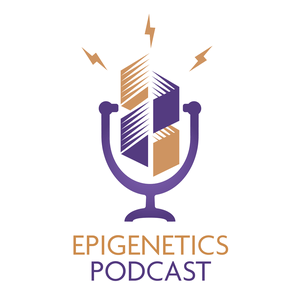
Hol dir die kostenlose radio.de App
- Sender und Podcasts favorisieren
- Streamen via Wifi oder Bluetooth
- Unterstützt Carplay & Android Auto
- viele weitere App Funktionen
Hol dir die kostenlose radio.de App
- Sender und Podcasts favorisieren
- Streamen via Wifi oder Bluetooth
- Unterstützt Carplay & Android Auto
- viele weitere App Funktionen


Epigenetics Podcast
Code scannen,
App laden,
loshören.
App laden,
loshören.


